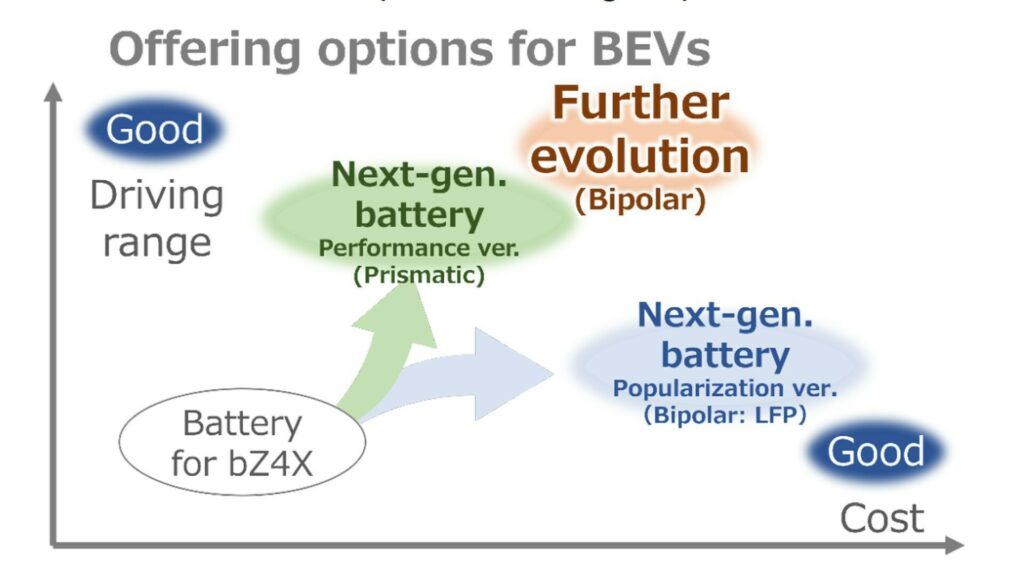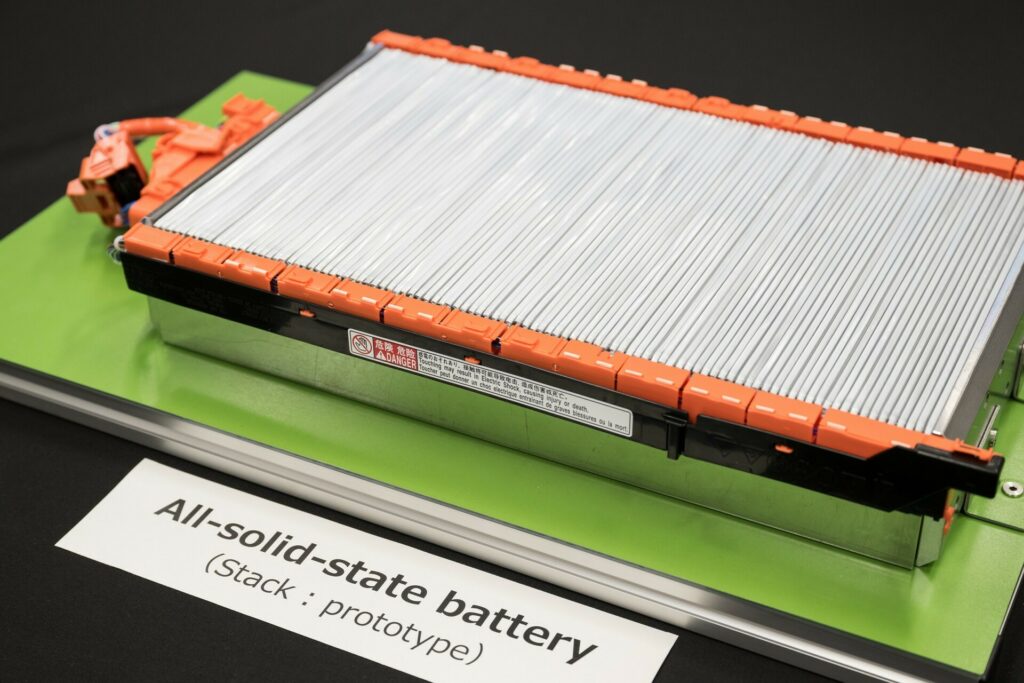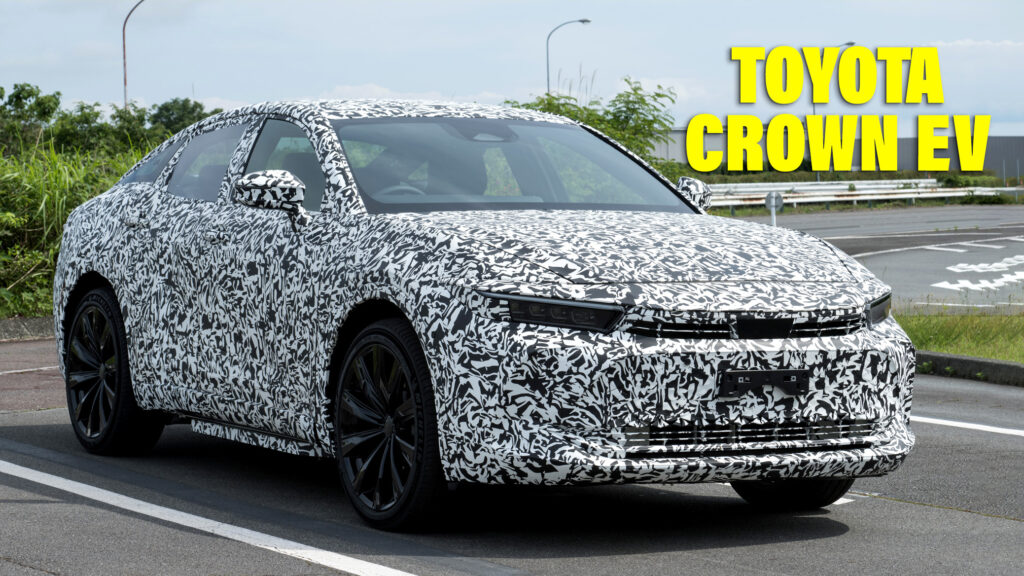Toyota has revealed new details about their electrification plans during a “Let’s Change the Future of Cars” workshop in Japan.
While there’s a lot to cover, let’s start with the company’s next-generation of electric vehicles which will start arriving in 2026. Toyota says they’ll be far more advanced than today’s models and offer significantly improved batteries.
Toyota plans to offer an assortment of different battery packs, which will enable the automaker to offer affordable EVs as well as those with better capabilities. The company’s mass-market offering will be a bipolar lithium iron phosphate (LFP) battery, which promises to be “good” and “low cost.”
More: Toyota Unveils New Electrification Strategy And Plans For 10 Next-Gen EVs By 2026

In particular, the company said they’re aiming for a “20% increase in cruising range, a 40% reduction in cost, and quick recharging in 30 minutes or less (SOC=10-80%) compared to the current bZ4X.” Those would be welcome improvements as the bZ4X starts at $42,000 and has up to 252 miles (406 km) of range.
The company is also working on a Performance battery, which will offer a cruising range of 1,000 km (621 miles). That promises to make range anxiety a thing of the past and Toyota said the long range will be made possible through “vehicle efficiencies, such as aerodynamics and weight reduction.”
Those are only part of the equation as the battery plays a big role. Toyota didn’t say too much about it, but the battery will be “square” and have an increased energy density. The automaker also said the battery will be 20% cheaper than the one found in the bZ4X and will be able to go from a 10-80% charge in 20 minutes or less.

If that wasn’t enough options, Toyota is also working on a High Performance bipolar lithium-ion battery. It’s slated to arrive in 2027 or 2028 and build on the benefits of the standard Performance battery. In particular, Toyota said we can expect an additional 10% increase in range as well as a 10% reduction in cost.
Besides ‘traditional’ batteries, Toyota is aiming to have solid-state batteries ready for commercialization in 2027 or 2028. The company estimates their solid-state battery will have a 20% increase in range compared to their Performance battery, so that’d be 1,200 km (746 km). The battery would also allow vehicles to go from a 10-80% charge in 10 minutes or less, which approaches the speed of refueling an ICE-powered vehicle.
If that wasn’t impressive enough, Toyota said they’re already working on a solid-state battery with a “higher-level specification.” This one aims to have 50% more range than the Performance battery, so that’d be a whopping 1,500 km (932 miles).

Besides focusing on batteries, Toyota is working on “aerodynamic drag reduction technology based on rocket hypersonic aerodynamics.” The company went on to say “by being able to reduce aerodynamic drag without being restricted by the shape of the car, it is expected to combine an attractive design/packaging with aerodynamic performance (Cd0.1 level in view).”
Toyota is also reimagining how they build cars as they want to embrace giga casting and a “self-propelling assembly line.” The latter would eliminate the need for expensive conveyors as cars would drive themselves down the assembly line after they reach a certain stage.
Furthermore, Toyota is working to incorporate a smaller rear eAxle into its vehicles. This promises to increase range as well as improve cargo space and aerodynamics.
Engineers are also working to improve efficiency and flexibility. In regards to the latter, the company showed off a Crown EV prototype.










